|
Labour are almost bound to form the next Government, so much so that you can't get better odds on them than 7 to 1 on, while the Tories are around 6 to 1 against (but if you fancy longer odds, UKIP are 1,000 to 1.) What sort of government will Starmer's be? Here, I look at Labour's statements and policies on crime and the criminal justice system. Starmer has chosen crime as one of the five priorities for his Government, he made a policy speech on it in March (Speech) (1), and there's now a lengthy Labour Policy Statement (LPS) (2). I start with a summary of what they say (quotes in italics from Starmer's speech, unless I state 'LPS')
Then: 7. What Starmer doesn't say. ***********************************************************************
“The statistics spell it out…. “The crime wave gnawing at our collective sense of security "In recent years...far more crime is being reported (LPS) " Levels of crime remain too high" LPS) "The truth is simple: after 13 years of Tory Government, crime is out of control.”() At PMQs, 22.3.23 "Far more crime is being reported" (LPS) It is well established that, for most purposes, especially for examining trends, the most authoritative crime statistics are those produced by annual surveys of the population, which ask a sample of people about their actual experience of crime, under the Crime Survey of England and Wales (CSEW)(3). Crime recorded by the police is now recognised to be unreliable, because of changes in police practice and policy and definitional and other changes which mean that fluctuations maybe partly or even mainly due to things other than actual changes in the rate of crime. Though police recorded crime may still be the best measure for small volume crimes, or only measure for so-called ‘victimless’ crimes eg drugs. For this reason, all graphs are from the latest CSEW unless otherwise stated. The CSEW data is absolutely clear: there is no ‘crime wave’: crime is not ‘out of control’. Levels of crime have, in fact, plummeted in the UK since the early 90s, as they have in most western countries. Not for several generations have our streets been so safe. And note, crime was significantly higher under Labour than it is now. Dangerous game that Starmer is playing.... Figure 1 : the collapse of crime in England and Wales since 1995 "And serious violent crime has gone up in recent years" (LPS) "serious violence - rising again" The fall was equally dramatic for violent crime. And again, higher under Labour. Figure 2: the collapse of violent crime in England and Wales since 1995 So, how can the LPS say, "serious violent crime has gone up in recent years"? The answer is that they base that statement on police recorded crime, rather than the CSEW. Police figures do show an increase since 2020. But here's what the Office of National Statistics have to say about that sleight of hand: "Police recorded violence should be interpreted with caution as increases may reflect improvements made by police forces in identifying and recording offences, as well as an increase in victims reporting incidents. Police recorded violence does not provide reliable trends in crime but are a better indicator of police activity (3) Labour have deliberately chosen to quote the wrong figures, because they give the picture they wish us to believe, of rising crime. "knife crime - back on the rise" "knife crime rising by 70% since 2015" Starmer here uses police recorded crime figures quite properly, because such small volume crimes are not reliable measured by the CSEW. And those figures do show such a rise since 2015. But 'back on the rise' now? Yes, a rise last year, after a sharp fall during COVID lockdowns, because fewer people were about then – but still lower than pre COVID. But given street crime plumetted during COVID, because people didn't get out, it's misleading to say it's on the rise now, without referring to the abnormal circumstance of COVID, and without admitting it's still below the pre-COVID level. Figure 3. Knife-enabled crime recorded by the police (exc. GMP) Because these figures are so sensitive to changes in police recording practice - the data from Greater Manchester Police are entirely excluded for that reason - the CSEW report uses, as a cross-check NHS admissions to hospital for assault wth a sharp object. It's significant those show a continuing fall. "sexual offences - higher than ever" "rape and sexual offences now at a record high" (LPS) Figure 4. Prevalence of sexual assault among adults On sexual offences, there is a sharp contrast between BCS data, and police recorded crime. The CSEW data show little change in the prevalence of rape over the past 15 years It does show a significant rise in sexual assaults other than rape from 2014-19, though no clear trend up or down since then. The Office of National Statistics cautions that the data after 2020 isn't reliable, because the question was dropped in phone surveys during COVID. So how do Labour claim (LPS ) that rape and sexual offences are now at a 'record high'? Again - by choosing to use instead police recorded crime, which does show an increase. But this is what the Office of National Statistics say about that sleight of hand (4). "sexual offences recorded by the police do not provide a reliable measure of trends in these types of crime. Improvements in police recording practices and increased reporting by victims have contributed to increases in recent years……. and "The increases in police recorded sexual offences seen in recent years largely reflect improvements made by the police in how they record these crimes and an increased willingness of victims to come forward and report. High-profile incidents, media coverage and campaigns are likely to have affected people's willingness to report both recent and historical incidents to the police and For a subset of forces providing data to the Home Office Data Hub, 24% of sexual offences recorded by the police in the year ending March 2022 were non-recent offences (those that took place more than 12 months before being recorded by the police). (So, a lot of the rise in sexual crime increase in police data in 2021-22, in fact dated from years previously!) "domestic abuse - still rife" And domestic abuse. The LPS says, rightly, that there has been little change in the frequency of domestic abuse 'for some years'. What they don't say, is that levels now are much lower than under the last Labour Government.... Figure 5. Domestic abuse among adults "Prisons are no longer places where offenders are reformed or rehabilitated. Instead, offenders now come out of prison more likely to commit a crime again, with 80% of offenders now having at least one previous caution or conviction" (LPS) A straight lie. The LPS backs this up with a link to a government press release about reducing reoffending projects, which does not contain this statistic. Even if correct, this figure alone does not, of course, support the statement. The true figures for reconviction rates of prisoners are published regularly and show a completely different picture: a slow, stead decline ever since the peak, in 2010. Under Labour! (Interestingly this is the only reference to prisons, and nowhere in the document does Labour refer to gross overcrowding, or the soaring rates of violence and self-harm or the failure of recruit or to retain staff. One wonders why not.) Figure 6 Proven reoffending rate of prisoners, 2010-2021 (Q1 cohort each year) (Source: MoJ Proven reoffending statistics) 2. crime disproportionately affects ‘working people’, and women and girls “whatever the crime: anti-social behaviour, hate crime, serious violence, it’s always working people who pay the heaviest price” ‘Working people’ is meaningless. Deprived communities include many who don’t work and the proportion working, or retired from working, isn’t significantly different in better off communities. Preusmably, New Labour is desperate not to mouth the forbidden words 'working class'. The statement appears arguably correct for violent crime, at least in its association with areas of greatest deprivation - less clearly so with income, occupation or unemployment. I can't find evidence that hate crime is higher in deprived areas, but it would be surprising if it were not so given the association with race. It is sloppy to label anti-social behavior as 'crime': it often isn't, indeed that is often the problem. The recognition that some communities are more at risk from crime than others is in fact a valuable step forward, although as we shall see, Labour doesn’t follow the logic of this – that police and other resources should be focussed on poorer communities. "an epidemic of violence against women and girls" (VAWG) (LPS) The LPS talks of 'an epidemic' of violence against woman and girls (VAWG). This is a quote from a report by the Chief Inspector of Constabulary, Fire & Rescue Services (5). But where is the data to support this? The ONS is introducing a 'dashboard' of data on VAWG, but so far, only one year’s data is available, so there can be no conclusions about trends. So the only trend data available is that from CSEW on sexual violence and domestic abuse (since in both cases, a large majority of victims are women and girls). But as we've just seen, rates of victimisation for domestic abuse and rape have remained unchanged for years, while rates for other sexual assaults have gone up and down. Here, the LPS tries to have it both ways: recorded sexual offences and domestic abuse has risen but it recognises that changes in reporting and recording practice may be the explanation, in fact then admits that 'evels of domestic abuse, sexual assault and stalking have remained broadly stagnant for 10 years’. But an 'epidemic' isn’t a steady state: it is "an outbreak of disease that spreads quickly and affects many individuals at the same time" (Mirriam Webester dictionary). There is no 'outbreak'. Yes, levels are unacceptably high, it’s an issue that's been underplayed too long. Indeed, it is more damning that it's been tolerated at this high level for so long. But the language is misleading as to facts. And this mis-representation is part of the political purpose of Labour: to pretend there is a 'crime wave'. "anti social behaviour is a growing blight" "anti social behaviour has risen in town centres" (LPS) Anti-social behaviour often isn’t crime or is ‘borderline’ crime, behaviour which can be made into a crime if the police interpret it in a certain way - but it creates a climate where crime is more likely to occur, more likely to go unchallenged and it can cause in local people feelings of unsafety or alienation. Labour say ASB has risen in town centres. I can’t trace any source for that. CSEW is inconclusive. It says the number of people personally witnessing ASB increased 2016-21 but then it fell again in 2022-23. The % of people saying ASB is a big problem in their area rose in the mid-2010s but plateaued off at the end of the decade. But the % saying that there is a high level of ASB in their area shows a steady decline since the late 2000s, to a new low level. Given in addition the uncertainty what people mean by ASB, and its link with wider feelings of dissociation and worry, it seems impossible to say much definite about trends. 3. People feel unsafe, and have lost confidence in the police “Working people don’t feel safe “The crime wave gnawing away at our collective sense of security "our sense of security has slowly eroded over 13 years" (LPS) 'Fear of crime' can mean different things: a generalised feeling that crime nationally is rising or out of control, worry about crime in your own neighbourhood. or actual fear in particular places and times. It is well established that peoples' sense of risk of falling victim is generally much higher than actual risk, that consistently, a majority of people think crime is rising even when it is not, and that peaks in fear may be associated with publicity given to a few very serious cases. Poll data shows a long term fall in worry about crime as a general issue since the mid 2000s, following but lagging the actual fall in crime since the mid 1990s. On that measure, people are not feeling 'increasingly insecure'. Figure 7 IPSOS issues survey: what people say are the most important issues facing the country, % spontaneously mentioning crime.law and order, violence, vandalism, ASB etc The CSEW asks people about their worry about different sorts of crime. These, too, show a sustained, long term fall in such worries across all crime types, with some leveling off in recent years (the question doesnt seem to have been asked in 2021; the data for 2022 shows a further fall). The data show higher levels of worry among women, and not surprisngly, hugely higher levels of worry about rape: but with the same downward trend since the 1990s, leveling off in recent years. Figure 8. Prevalence of worry about different types of crime (Source: analysis of CSEW data in "The Drop in Worry about Crime and Its Gender Gap: Trends in England and Wales from 1998 to 2019/2020" Sophie Pohl, David Buil-Gil, CrimRxiv, Uni. of Manchester) A third source of data is about people’s perceptions of safety in particular places and times. CSEW has a long series of data on whether people feel safe walking alone after dark. This is quite unambiguous: not only has there been no decline in levels of feelings of safety, but they reached their highest ever level in 2023, for woman and for men. In fact the increase is much more marked for women. Figure 9: % people saying they feel safe walking alone after dark, CSEW Finally, there is a new set of data from ONS, Perceptions of personal safety and experiences of harassment. This has only been collected for 2 years, 2021 and 2022. This shows as, you would expect, that people are more fearful at night than in the day, and in quiet rather than busy place, and that women are more fearful than men: also, that women's experience of harassment in public is very high indeed. It does show some small increases in feeling in unsafety 2021-22, though this may be coloured by worries about COVID. Conclusion: Starmer's assertion of increasing feelings of unsafety is not founded in the evidence. 4 . People are losing confidence in the police "public confidence in the police has been on a downward trend since 2017" (LPS) "Our policing by consent model – a precious model – is now hanging by a thread" As with crime, confidence can be understood in various ways: generalised 'support' for the police, feeling that the police do a good job, trust in their integrity and fairness, and actual personal experience of them, in various roles. Figure 9. YouGov tracker poll on police It is true that there has been a decline since the mid 2010s, both in confidence as expressed in national polling, and in peoples perceptions of their police locally. (Interesting comparison with figure 9: CSEW have been asking the same question but about local police - they also show a fall since 2018 but less pronounced. Again, people respond differently if prompted to think about their local experience, rather than abstract political concepts.) At national level, there have been a succession of scandals and failures, at local level a sharp fall in visibility of foot patrols, as indeed mentioned by the LPS.
5. the criminal justce system is failing " in recent years, arrests, prosecutions and convictions have all halved (LPS) "Our courts are backlogged, victims trapped in a purgatory, waiting for the justice that they deserve. "The court backlog is bigger than ever" (LPS) "The charge rate – just 5% – never lower." "more court cases are long delayed" (LPS) "the government’s failed privatisation of probation" (LPS) All of this is true. Starmer doesn't so much as mention, though, the catastrophic deterioration of the prison system, the physical decay of courts, the massive closure programme and the move to online courts, known to disadvantage the marginalised, or the catastrophic decline in numbers of criminal barristers, duty solicitors and even criminal judges. I return to these omissions below. 6. Labour's policies 6.1 halve violence against women and girls How? Admits 'this will not be easy and will require ....looking beyond ....criminal justice". A lot of faith in 'specialists', to be inserted into every police force, specialist rape courts, specialist rape units. Ban promotion of misogyny on line. Education. Domestic Abuse Register. Comment: costly, but uncosted and unfunded. Efficacy in cutting crime by half doubtful, though should ensure more convictions and better care for victims. 6.2 halve knife crime within a decade How? Make grooming of children for crime illegal; mental health workers into every school; putting youth workers into A and E depts and custody suites; clamp down on online sale of weapons. Comment: costly, but uncosted and unfunded. Efficacy doubtful. 6.3 raising confidence in police to the highest level How: restore neighbourhood policing with 13,000 new officers/PCSOs. Raise standards. Overhaul vetting, training, miconduct procedures. 'A new standards regime'. More support for officers. Reduce ASB with new Respect Orders, mentors for children, mental health workers in schools, ASB officers in every local authority, targetting drug dealing sites, tougher penalties for fly tipping, 'increase community penalties' with community input on unpaid work. Comment: the aim isn't clear: what was 'the highest level', when and how measured? If you go back to the 1950s, very much higher indeed. Proposals very costly but with the exception of the 13,000 police, not cossted or funded. Does not ask why recorded crime has risen when actual crime level remain at historic low, or why, when police numbers are back to 2010 levels (6) , they can't just put more back on beat. What is proposed is a major cultural change, always difficult and dependent on leadership. Some proposals eg giving community say in unpaid work, are not new, others eg increasing community penalties, fly tipping, mental health in schools seem unrelated to the aim. 6.4 Reverse the collapse in the proportion of crimes solved How? Don't know! A commission will be set up to suggest how. First steps, meanwhile: increase numbers in CPS, changing relationship between police and CPS (no detail), direct entry scheme for detectives, new protection + more support for victims. Comment: even first steps carry significant costs but uncosted and unfunded. Absence of anything about crisis in criminal bar, criminal judges, courts availability. Lack of curiosity about why bringing police numbers back up to 2010 level hasn't reversed fall in prosecuctions: something wrong with police? No account taken of knock-on impact on failing, overcrowded prisons. 7. What Starmer doesn't say What Starmer doesn't say is far more revealing than what he does say. The following statements are based on the evidence. 7.1 That there is no crime wave. There is, in fact, a huge a crime 'slump'. Crime has fallen steadily since 1995 and is now, astonishingly, just a quarter of what it was then. Our steets are in fact safer than for generations. 7.2 That people sense this, and in consequence, worry about crime, are fearful of crime, far less than they used to be. 7.3 That despite crime falling by three quarters, the prison population has doubled. There is overwhelming evidence that the rise in prison numbers hasn’t been the cause of falling crime (8). The rise in prison numbers isn’t because offenders are being brought to justice, but is the result of greater use of custody for the ever-smaller proportion that are brought to justice. This has resulted in massive, never-ending prison building programme, at a cost of around £3bn capital and £1bn a year, for very little if any social benefit. Most of the blame attaches to the last Labour Government: prisoner numbers rose fastest under them, and the building programme was fastest under them. Labour are still doing it, out-bidding the Tories on longer sentences, and increasing pressure on prisons by increasing police numbers. 74 That despite this building programme, prisons remain desperately over-crowded while staffing has been cut, and prisons are in a worse state than for generations and are near breaking point. This is known to greatly reduce effectiveness in preventing reoffending by exprisoners. This will cause huge costs down the line, costs not recognised by Starmer, even though Labour has sought even longer sentences. 7.5 That the evidence does not support the belief that more police reduces crime. One proof is that crime did not rise when the Tories cut police numbers by 20,000. 7.6 That the root causes of the crisis in the criminal courts is too few criminal barristers, as a result of cuts in criminal legal aid that started under the Labour Government, and too judges specialising in criminal work. 7.7. Starmer is silent on the long standing failure to prosecute corporate crime, including pollution. 7.8 Curiously although Starmer insists that there is a crime wave, interestingly he does not commit to bring down crime overall. 7.9 Labour's proposals are clearly very costly but mostly not costed, not funded. Given the dire state of the economy and of public finances and the multiple severe pressures for extra funding on welfare and on every single public services, it is unrealistic to think that these proposals can ever be implemented. 7.10 Much of the proposals are not backed by evidence that they will have the effect sought. CONCLUSION Labour's policies on crime are dishonest, cynical, wasteful. Labour blatantly lie and use statistiics misleadingly in an attempt to play the old Tory card: encourage fear of crime. The Labour statements are clearly based on detailed understanding of the data: all the more unforgiveable that they carefully misuse and misrepresent it. Two questions: why do they do this? And how do they think they can get away with it? The answers are pretty obvious. Surveys show that worry about crime, and a desire for more police, punitive policies is greatest among the conservative-leaning public, and that is precisely the group (Red Wall Tories) that Labour neeed to win over (7). So, feed the beast! Although given their lead in the polls anyway, and given the decline in crime among issues that concern the public, it may be the entire excercise is unnecessary, electorally speaking. It also looks almost as though Labour rightly wanted to do something about violence against women and girls, but thought that might not be electorally appealling by itself, so clothed it in traditional language about crime waves etc. And they knew they will get away with it because the Tories, and much of the media, have always played the same game. Crime is in fact, comparing the reality today with the early 1990s, a much less pressing problem. Still a problem, of course: still affecting individuals and communites badly: but politics is about priorities, especially nowadays. And the decision to make crime one of the top five is I believe, entirely cynical. Meanwhile, Labour conceal the harm to the prison system by increasing use of custody, on which they are a far worse offender than the Tories, and the huge amounts of scarce public funds being sucked into the prison-industrial complex, thus not available for other public services. Nothing they propose will prevent the continuing downward spiral in the prisons system, indeed they add to it by cynically proposing even longer sentences. They ignore the root causes of the crisis in the criminal courts, even though that undercuts all they propose. They are silent on entirely corporate crime such a pollution, and white collar cime such as tax evasion, which go largely unpunished. They propose a huge increase in police numbers which will cost hundreds of millions which is unnecessary and won't cut crime. Finally, why I despise the Labour leadership, and why I wrote all this. Starmer thinks it is 1997and he is Blair. It isn't, and he isn't. This is a totally different and and terrifying world, and he doesnt even know it. In crime, he chose a non-existent problem as one of their top priorities, purely and cynically for electoral advantage, even though there is some doubt whether it will work electorally, or is needed to win. Meanwhile, he has nothing much to say about the truly awful problems of our time. In the UK, the horrendous economic imbalance between north and south, the huge increase in inequality in recent decades (much of it under Labour), the impossibility of ever returning to previous levels of growth and the consequences for public services, the fact that the UK is one of the most centralised and secretive states in the free world, that we have no constitution, that our legislature is stuffed full of cronies, that our electoral system is blatantly unfair and helped enable the Tory madness. In the wider world, the threat of war, the decay of liberal democracy everywhere, the rise of the dictatorships, the threat of nuclear war, the likelihood of war with Russia. Above all, the various overlapping environmental crises that are destroying our world in front of our eyes, and the huge threats this poses to the British people, for example, in terms of food insecurity, flooding and drought, extreme heat . Truly: cometh the hour, cometh not the man. Pedestrian, innately conservative, intolerant of different views within his party, lacking understanding, lacking public appeal, lacking imagination, and in use of statistics, lacking integrity, Starmer is doomed to disappoint on an epic scale, at as critical a point in our history as any before. A last note: I'm sad to see Patricia Hewitt play along with this farrago. I once respected her. NOTES
0 Comments
Your comment will be posted after it is approved.
Leave a Reply. |
I was formerly Finance Director of the Prison Service and then Director of the National Offender Management Service responsible for competition. I also worked in the NHS and an IT company. I later worked for two outsourcing companies.
Archives
July 2024
Categories
All
Click below to receive regular updates
|
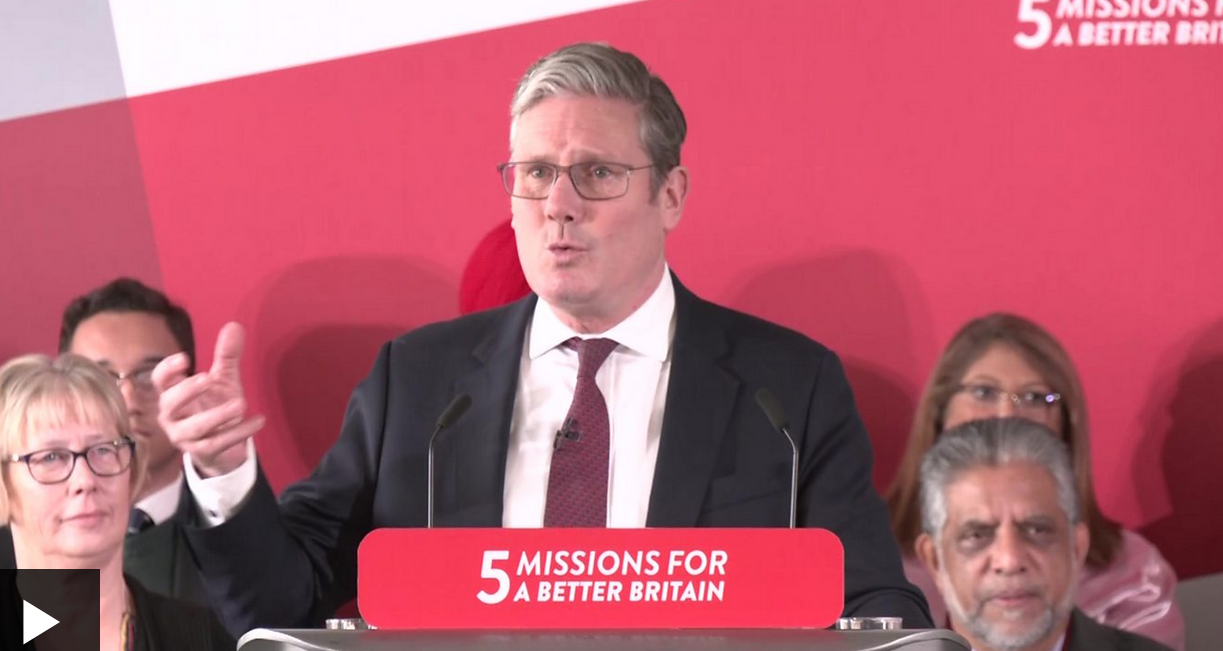
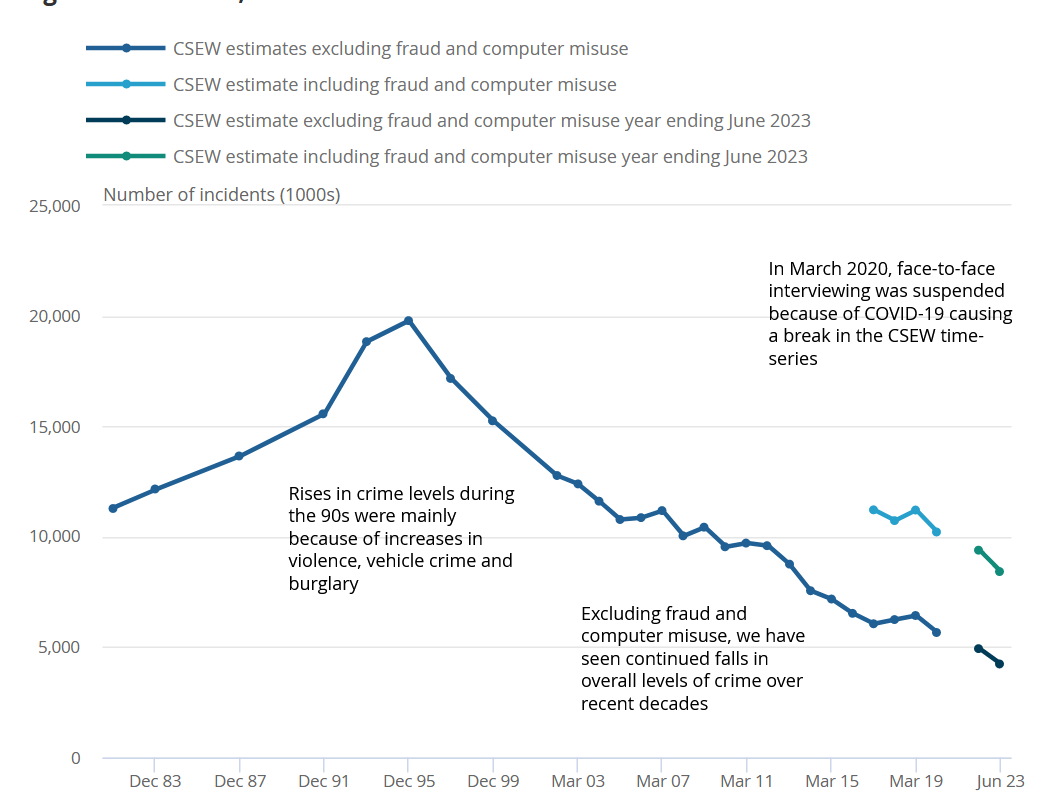
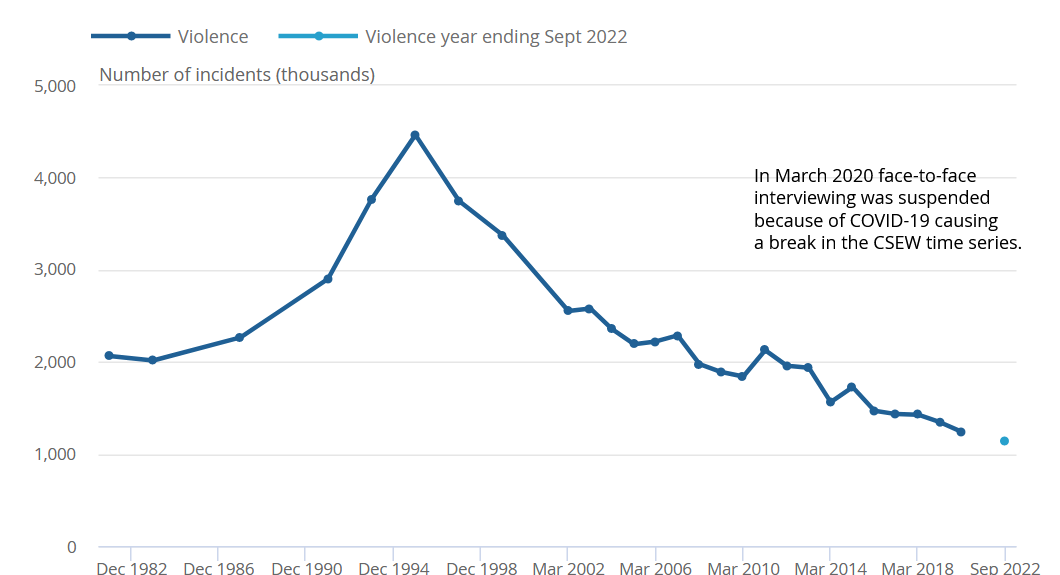
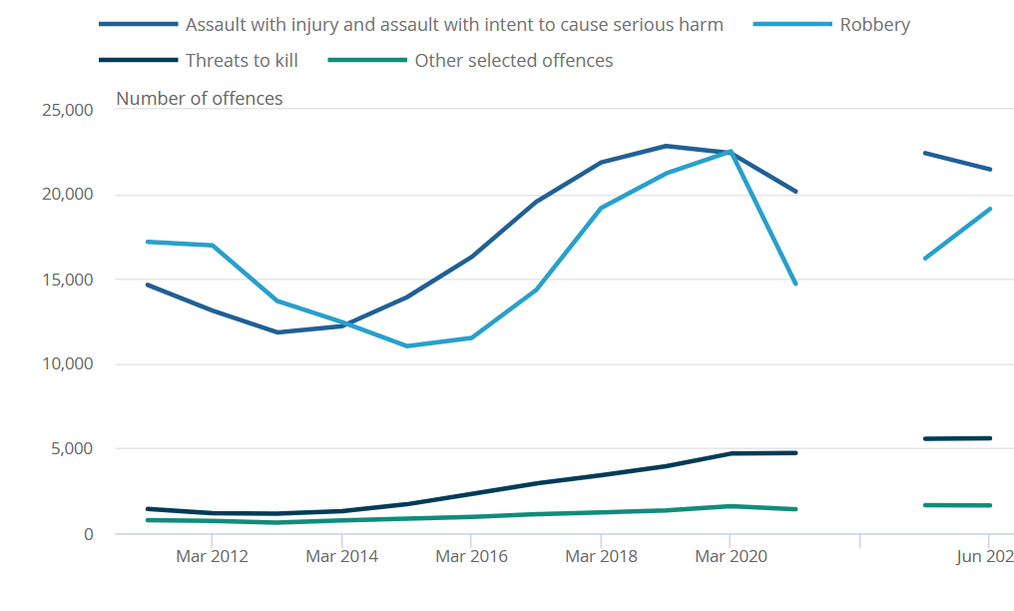
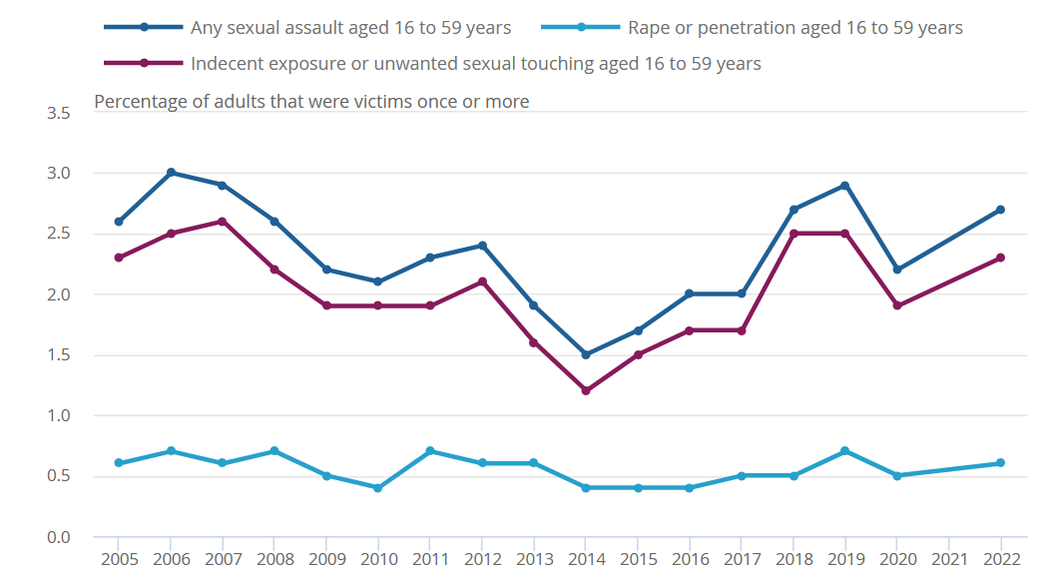
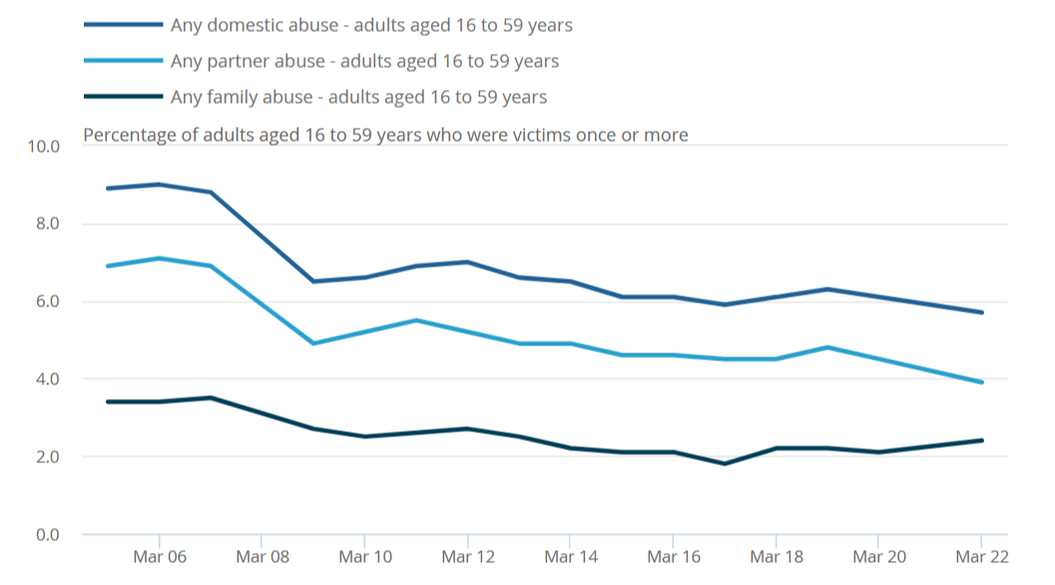
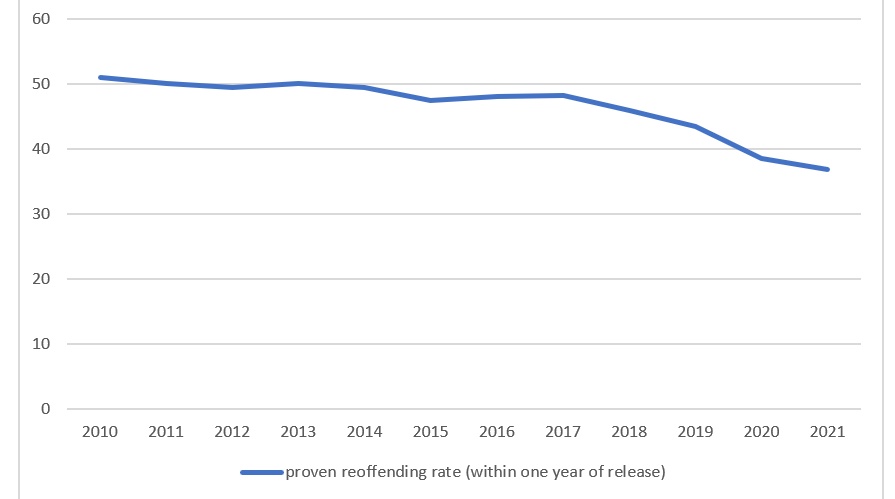
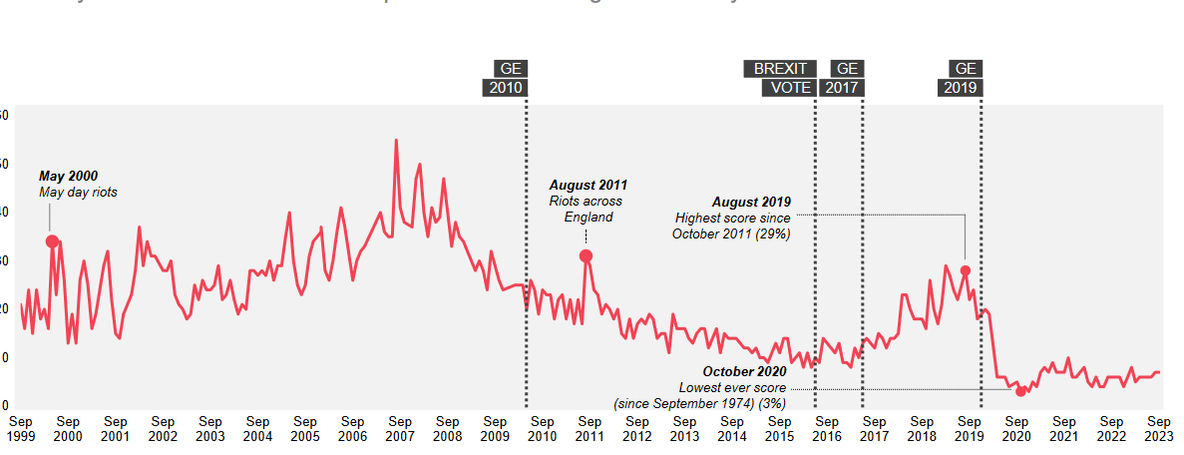
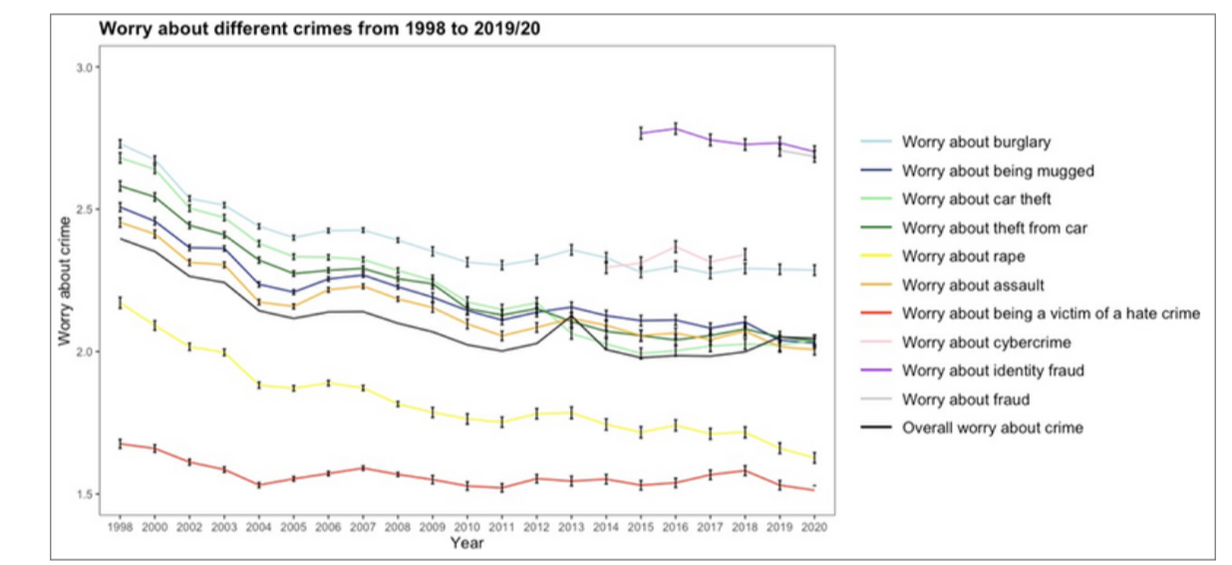
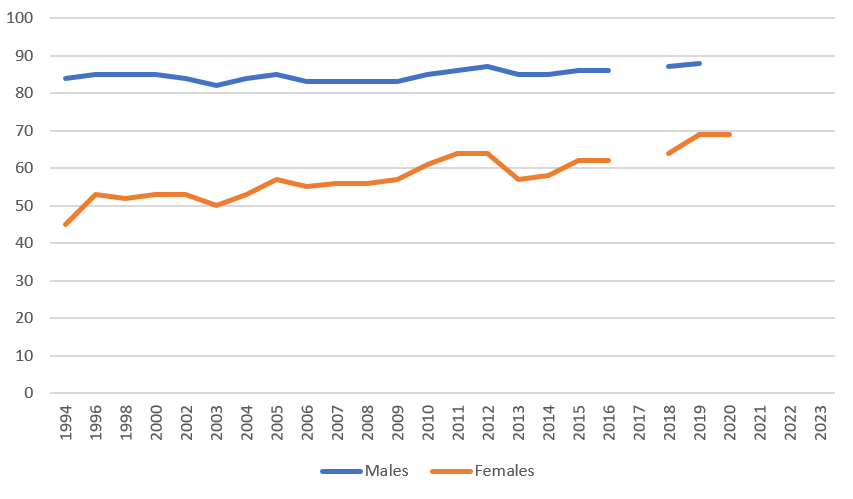
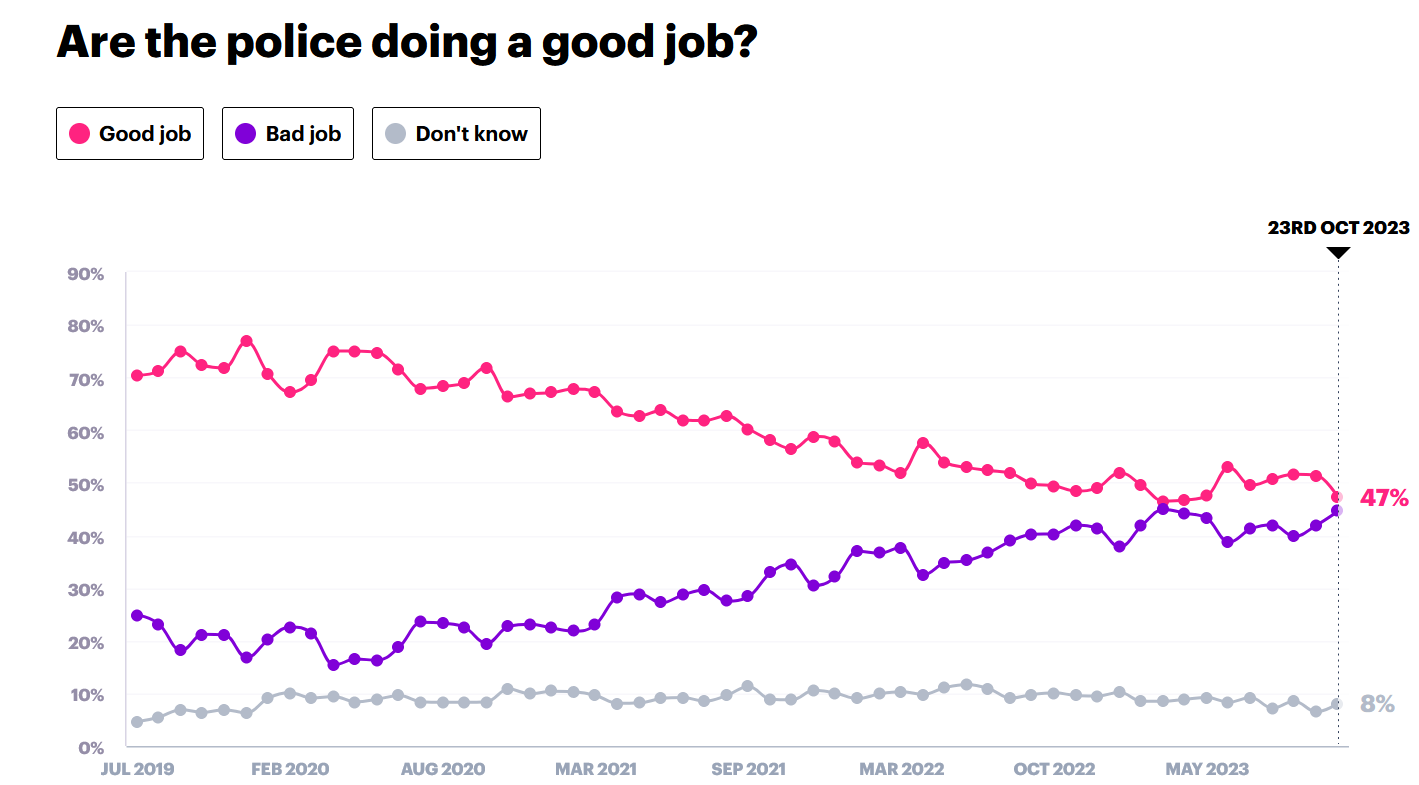
 RSS Feed
RSS Feed